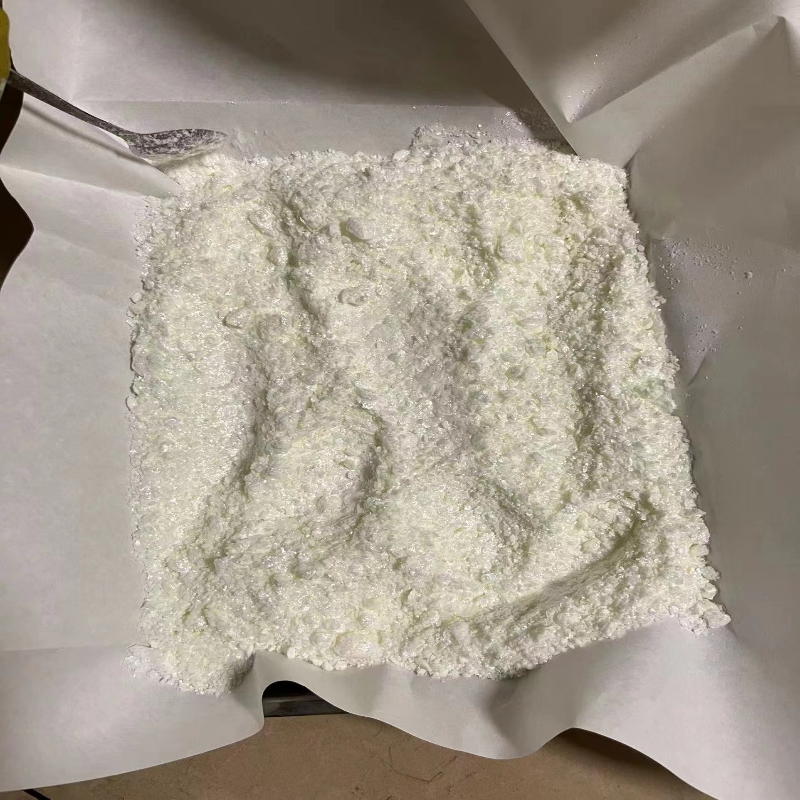-
Categories
-
Pharmaceutical Intermediates
-
Active Pharmaceutical Ingredients
-
Food Additives
- Industrial Coatings
- Agrochemicals
- Dyes and Pigments
- Surfactant
- Flavors and Fragrances
- Chemical Reagents
- Catalyst and Auxiliary
- Natural Products
- Inorganic Chemistry
-
Organic Chemistry
-
Biochemical Engineering
- Analytical Chemistry
-
Cosmetic Ingredient
- Water Treatment Chemical
-
Pharmaceutical Intermediates
Promotion
ECHEMI Mall
Wholesale
Weekly Price
Exhibition
News
-
Trade Service
Munich-based Wacker Chemie continues to specialize its silicone business in the electric vehicle sector and has now successfully completed certification to the IATF 16949 automotive industry standard for some silicone production, qualifying for the development and production of silicones according to the IATF-certified process products for automotive manufacturers and their original equipment manufacturers
.
The corresponding parts of the relevant workshops at the WACKER production site in Burghausen, Germany, and the production site in Zhangjiagang, China, were certified, as were the functional departments that monitor the production process
.
After successfully completing the certification, the testing institute TÜV NORD CERT issued a certificate to WACKER certifying that WACKER's corresponding quality management system fully meets the requirements of the IATF (International Automotive Task Force) 16949 standard
.
WACKER produces in certified workshops two-component silicone rubber formulations that form silicone elastomers by addition reaction at room temperature.
These SEMICOSIL®, ELASTOSIL® and WACKER SilGel® products are used as thermally conductive gap fillers, Silicone adhesives or packaging materials,
etc.
Silicones are now an indispensable material for electrically powered vehicles
.
Silicone rubber encapsulation reliably protects on-board and control electronics from vibration, moisture and dirt
.
Thermally conductive gap fillers improve the temperature management of power batteries and power control units; these devices generate a lot of heat while charging or operating, and therefore require reliable heat dissipation
.
WACKER can feel the strong demand for these silicones in the process of vehicle electrification
.
Robert Gnann, President of WACKER SILICONES, said: “Not only in Germany, the automotive industry is and will be one of the most important industries
.
Demand for high-performance materials, including WACKER silicones, continues to grow.
, which provides an excellent opportunity for WACKER to pursue IATF certification
.
With our innovative silicone portfolio, we will contribute to the automotive industry’s efforts to improve productivity, efficiency and quality
.
”
The IATF 16949 standard was created by leading European and North American automakers in 2016.
It summarizes the consensus of the auto industry on the basic requirements and quality management standards of the industry.
It aims to reduce quality risks as much as possible and continuously improve the reliability of production and supply chains.
sex
.
Possessing IATF 16949 certification is a prerequisite for suppliers to work directly with car manufacturers
.
Following successful certification, WACKER can now supply silicone products directly to automakers and their system and module suppliers
.
Duke Cho, who is also responsible for WACKER CHEMICALS (Korea) Co.
, Ltd.
and the Industrial Solutions business unit of WACKER SILICONES, said: "Our customers not only want high-quality products, but also the ability to offer tailor-made personalities.
a reliable partner for chemical solutions that fully meet the industry's strict guidelines and process requirements
.
This certification shows that we meet these high standards and specifications in the field of production and quality management, which will enable us to be in the field of electric vehicles.
business has benefited significantly
.
”
Packaging materials, silicone adhesives and thermally conductive gap fillers for electric vehicles
Packaging materials, silicone adhesives and thermally conductive gap fillers for electric vehiclesSilicone elastomers are indispensable for meeting the technical requirements of future automotive manufacturing, especially in the field of electric vehicles
.
Whether used in electric motors, power control units, displays, fuel cells, batteries or sensors, WACKER silicones protect sensitive electronic components, support thermal management, and enable critical issues such as vehicle electrification and networking, autonomous driving Industry trends such as these can be reliably achieved and economically
.
WACKER's thermally conductive silicones are mainly used in thermal management systems for electric vehicles because of their ability to dissipate heat effectively, and their material properties remain constant between –50°C and 180°C (special products up to 230°C).
C)
.
Depending on the component construction, thermally conductive gap fillers, silicone encapsulation materials, silicone adhesives, or thermal pastes can be used to dissipate heat efficiently
.
WACKER's packaging materials and thermally conductive gap fillers are used to thermally connect battery packs and cooling systems, or to protect and cool power control units
.
WACKER's thermally conductive gap fillers improve the heat transfer between electronic circuits that generate heat during operation and heat sinks: Following successful certification to the IATF 16949 standard, Munich-based WACKER Chemie Group can now directly provide automotive manufacturers and Available from system and module suppliers
.
(Photo: Wacker)
WACKER's silicone gel products are specially developed for manufacturers of electronic components: they can be cured at room temperature, by heat, or accelerated by short-term UV exposure
.
(Photo: Wacker)







